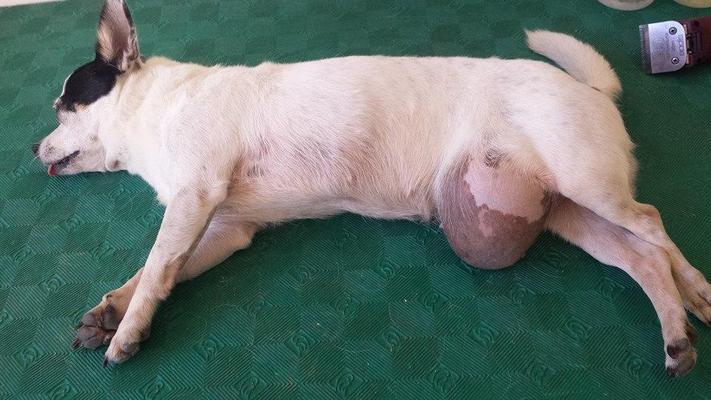Dog Hernia:
Are you wondering how to check and treat dog hernia at home? You can learn about all the tips and tricks in the sections below. For many pet owners, detecting signs that their dogs need help may not be all that easy. This makes it hard to tell when your pooch may be suffering from a hernia.
While you don’t need to visit the vet to deal with the situation, you should at least communicate with one. Whether it is a pup or a grown dog, treatment usually follows the same routine.
Hernia in Dogs or Dog Hernia:
It is common ailment dogs suffer from, and it is more noticeable in puppies. The sickness is characterized by a muscle tear around the belly button of your pet. It could be as a result of a genetic condition or caused by trauma like in the case of an accident. You can learn more here about the situation in pets. There are different types of dog hernias, and they include.

Inguinal Hernia:
You can find this type mostly in an older female pooch who is pregnant. The growth of the offspring in the uterus could trap the bladder, causing a lot of pain in the groin. If not treated, it could be life-threatening, so you should be extra vigilant with a pregnant dog.
Perineal Hernia:
A tear in the pelvic muscle could cause the content of the abdomen to be exposed. This situation is common in male breeds of Collies, Boxers, Welsh Corgis, and Boston terriers. Especially young ones under five who have not been neutered.
Diaphragmatic Hernia:
A hole in the diaphragm could expose internal organs into your dog’s chest cavity, making it difficult to breathe and move. It is usual for newborn pups not to have a developed muscle in the chest, and if this is the case, you should allow a few weeks to grow it.
Umbilical Hernia:
This one is common in pops and is quite reasonable once their umbilical cords fall out. In most cases, it will heal out after a few weeks, but some complicated situations may require surgery to correct. You should check with a veterinary specialist to determine the best way to treat this type of hernia.
Symptoms of Hernia in Dogs:
It may be a hard task detecting sign early in mature dogs, not until they start having difficulties breathing or moving.
However, some of the early signs to look out for include the followings:
- Excessive drooling
- Shortness of breath
- Vomiting
- High fever
- Loss of appetite
- Swelling
- Cramping
- Numbness in the fore and hind limbs
The first thing you should do when you suspect your dog may be suffering from a hernia is to schedule a visit with your vet. They will need to get an x-ray to get a proper diagnosis and determine the best form of treatment. There are also other methods you can use to ease the pain after surgery or intensive treatment.
Dog Hernia Treatment:
In cases where abdominal content is exposed, surgery will be needed to correct the situation. The correction is permanent and would cost all the processes involved (preoperational, operation, and post-surgery treatment.) Leaving your pet untreated could result in severe pain and more complications in the future. However, there are some ways you can make the situation easier for your animal companion.
Use CBD Oil:
CBD has proven to be effective in treating pain and inflammation conditions in both humans and animals. There are several good CBD oil for dogs with a hernia, so you may want to check them out.
Using the oil around the region twice daily could help soothe pain and provide quick relief after surgery. It could also help them sleep better while improving their appetite, which is needed for a speedy recovery.
Soothing Balm and Ointments:
You can also find balms for arthritis that could also help your dog deal with their treatment pains. Your vet could prescribe some good options for you to use after surgery.
Final Note:
Post-treatment procedures usually involve the administering of pain relief medication. You want to avoid using any other pills other than the one administered by your vet. Aromatherapy is a great way to calm and ease the pain, so it is safe to use CBD oil and balms for hernia treatment.
If you are interested to publish a sponsored post or guest post in nursing exercise then email here: maria.mona023@gmail.com

Maria Khatun Mona is a Founder and Editor of Nursing Exercise Blog. She is a Nursing and Midwifery Expert. Currently she is working as a Registered Nurse at Evercare Hospital, Dhaka, Bangladesh. She has great passion in writing different articles on Nursing and Midwifery. Mail her at “maria.mona023@gmail.com”

Thanks